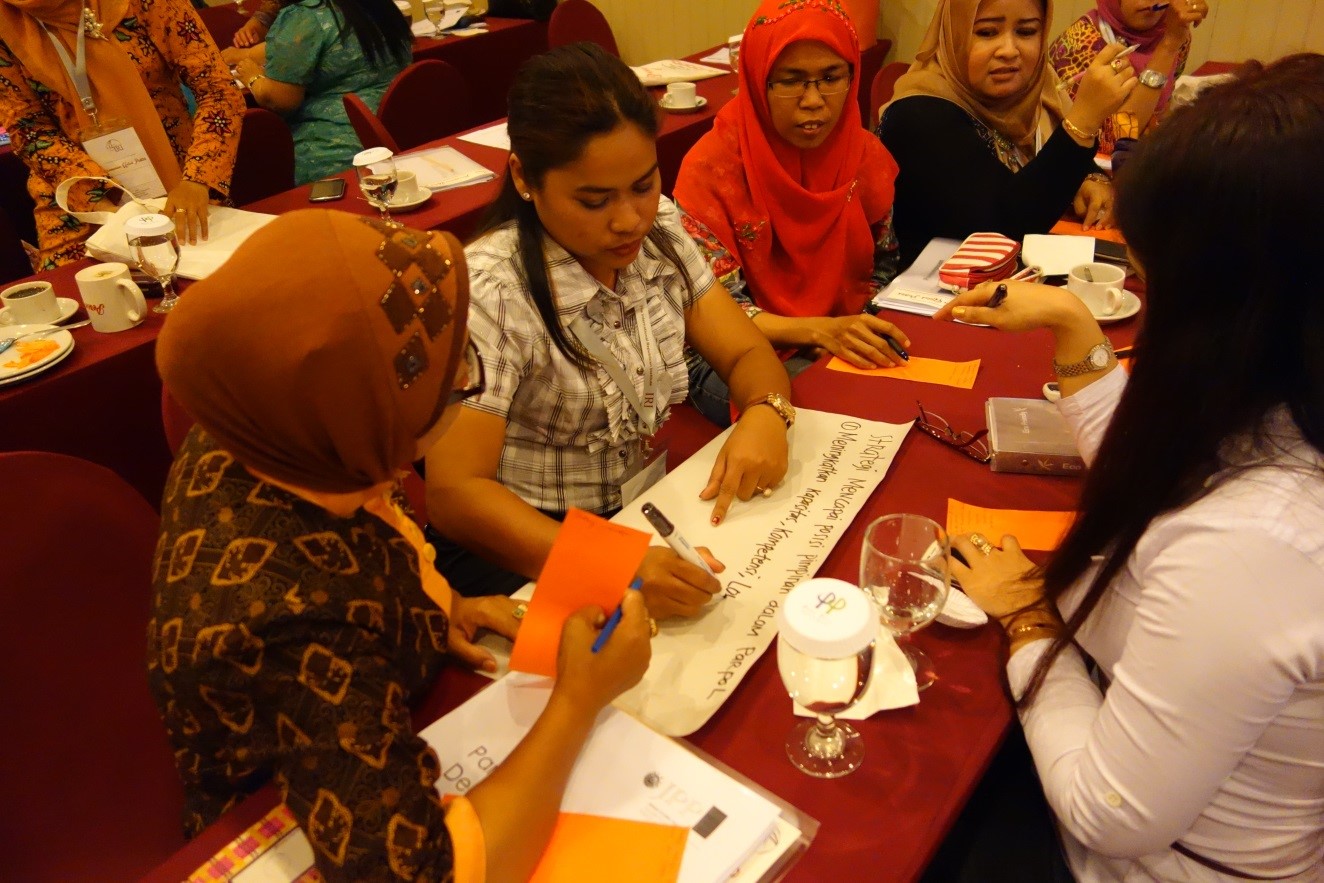International Women’s Day Blog Series Spotlight: Indonesia Part Two: Where We Are Today

Following a non-binding recommendation (2004) and then binding legislation (2009) on a 30% quota for female candidates, women’s participation in government increased.
Unfortunately, Indonesia’s 2014 national legislative elections marked the first elections in 15 years that reduced the number of female representatives in the People’s Representative Council or Dewan Perwakilan Raykat (DPR). Female candidates won just under 17 percent, or 94 of the total 555 seats, which was a decline from slightly less than 18 percent in the 2009 elections. The provincial level representation also saw female candidates decreasing their share of seats by approximately one percent. Systemic challenges female leaders identified included candidate gender bias exacerbated in the current candidate-selection open list voting system and lackadaisical recruiting for candidates. These barriers must be addressed prior to the 2019 elections and must be addressed before the 2014 elections have been forgotten by voters and candidates.

The International Republican Institute (IRI) has been working to increase women’s meaningful participation in Indonesia politics and society since 2013, primarily at the sub-national level. Most recently, IRI concluded its “Winning with Women 2014” project which worked with 1000 women candidates who were competing for seats in five target provinces in the 2014 legislative elections. IRI gained a unique perspective on the issue while working with the women, 72 percent of whom were first-time candidates, as they attended IRI workshops, prepared their campaigns, waited for the results on Election Day and took elected office.
IRI has conducted nationwide public opinion polling, pre/post-election focus groups, interviews with female candidates, interviews with party leaders and numerous workshops for women candidates. Through this IRI has gained a clear understanding of the political barriers to women in Indonesia as well as possible solutions, both inside and outside the party apparatus.
Indonesia has seen some significant successes in moving women into politics since the 1995 Beijing Declaration and Platform for Action. Legislation was introduced as an optional and then a mandatory quota for parties to run female candidates. The nation elected its first female party chairperson (1993), minister of agriculture (1998), vice president (1999), president (2001), and foreign minister (2014). However, there is still work to do before women are equal participants in politics and IRI will continue to support greater representation of women in Indonesian politics.
IRI is confident the decline of female representation in the 2014 election will be only a minor setback in the long road towards women’s equality.
Top